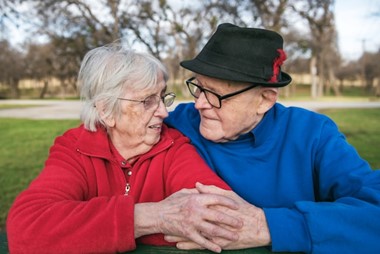Morris Oiring of New York is a healthcare executive dedicated to elevating the overall patient experience. Morris Oiring puts a strong focus on enhancing the lives of seniors through personalized attention and tailored care strategies in senior healthcare. In the following article, Morris Oiring of New York explores the significance of respect and reverence in senior care, highlighting the profound impact it can have on the well-being and quality of life of older adults.
In numerous cultures around the world, the wisdom and life experiences accumulated by our elders are revered and celebrated. As individuals age, there is a growing recognition of the invaluable contributions, vast knowledge, and rich legacy that they offer to society. This acknowledgment is not merely symbolic but holds profound significance in shaping intergenerational relationships, preserving cultural heritage, and fostering societal cohesion.
Morris Oiring on the Importance of Honoring our Elders
The importance of honoring our elders transcends mere reverence; it underscores a fundamental aspect of human connection and community resilience. With age comes a wealth of experiences, insights, and lessons learned over a lifetime, making seniors invaluable repositories of wisdom and guidance. Their stories and perspectives serve as living testaments to history, offering invaluable insights into the past and shaping our collective understanding of the present.
Moreover, honoring senior citizens is an affirmation of their intrinsic worth and dignity as individuals. It recognizes their inherent right to respect, autonomy, and self-expression, irrespective of age or physical ability. By acknowledging and valuing their contributions, society affirms the fundamental principle of human dignity and reinforces the importance of inclusivity and compassion in our interactions with one another.
Furthermore, honoring our elders is essential for fostering intergenerational solidarity and bridging the gap between different age groups. By actively engaging with seniors and seeking their counsel, younger generations can benefit from their wisdom, perspective, and lived experiences. This exchange not only enriches the lives of individuals but also strengthens the fabric of families and communities by fostering empathy, understanding, and mutual respect across generations.
Understanding the Value of Respect
Respect is a fundamental aspect of human dignity and is essential for fostering positive relationships and interactions. In the context of senior care, respect involves acknowledging the independence, choices, and preferences of older adults, regardless of their physical or cognitive abilities. Treating seniors with dignity and respect means valuing their inherent worth as individuals and recognizing their right to make decisions about their own lives.
Honoring senior citizens in healthcare underscores not only the importance of medical treatment but also the preservation of dignity, respect, and cultural values. Within healthcare settings, acknowledging the wisdom and experiences of elderly patients is crucial for fostering a compassionate and patient-centered approach to care. By recognizing the enduring bonds of familial and societal ties, healthcare providers can create environments that uphold traditional values of filial piety and communal support networks.
Incorporating cultural traditions and respecting the individual preferences of senior patients ensures that their healthcare experiences are rooted in their unique backgrounds and values. This approach not only promotes a sense of belonging and cultural continuity but also enhances the overall quality of care by addressing the holistic needs of patients.
Moreover, honoring our elders in healthcare settings serves as a reminder of the interconnectedness of past, present, and future generations. By valuing the contributions and insights of senior patients, healthcare providers acknowledge the enduring legacy of wisdom, resilience, and love that transcends age barriers. This recognition fosters a sense of empowerment and dignity among elderly patients, promoting their active participation in decision-making processes regarding their health and well-being.
Embracing Cultural Traditions
Morris Oiring of New York explains that many cultures have long-standing traditions that emphasize the importance of honoring and respecting elders. These traditions often involve rituals, ceremonies, and practices designed to show reverence and gratitude for the wisdom and guidance of older generations. By embracing cultural traditions and customs, senior care providers can create environments that celebrate the rich diversity and heritage of their residents, fostering a sense of belonging and cultural identity.

Promoting Person-Centered Care
Person-centered care is a philosophy that prioritizes the individual needs, preferences, and goals of each senior resident. By adopting a person-centered approach, senior care providers can tailor their services and support to meet the unique needs and desires of each individual. Morris Oiring of New York says that this may include offering choices and options for daily activities, meals, social interactions, and healthcare decisions, empowering seniors to maintain a sense of control and autonomy in their lives.
Fostering Meaningful Connections
Building strong relationships and connections with older adults is essential for creating a supportive and nurturing environment in senior care facilities. Morris Oiring of New York suggests taking the time to listen, engage, and connect with seniors on a personal level can make a significant difference in their quality of life and emotional well-being. Whether through one-on-one conversations, group activities, or special events, fostering meaningful connections helps seniors feel valued, understood, and respected.
Providing Compassionate Care
Compassion is a cornerstone of quality senior care and involves showing empathy, understanding, and kindness towards older adults. Providing compassionate care means taking the time to truly understand the needs and concerns of seniors and responding with sensitivity and empathy. Morris Oiring of New York explains that this may involve offering emotional support, assistance with daily tasks, or simply lending a listening ear. By demonstrating compassion in their interactions with seniors, care providers can create a nurturing and supportive environment that honors their dignity and worth.
Respecting Cultural and Religious Beliefs
People come from diverse cultural and religious backgrounds, each with their own beliefs, values, and traditions. It is important for senior care providers to respect and honor these cultural and religious beliefs, ensuring that individuals feel comfortable and supported in expressing their identity and spirituality. Morris Oiring of New York says that this may involve accommodating dietary restrictions, observing religious holidays, or providing access to spiritual resources and services. By respecting cultural and religious diversity, healthcare facilities can create inclusive environments that celebrate the unique heritage and traditions of their patients.
Empowering People to Make Independent Decisions
Empowering seniors to make decisions about their own care and lifestyle is essential for promoting autonomy and independence. Morris Oiring of New York explains that senior healthcare providers should involve older adults in decision-making processes related to their health, living arrangements, and daily activities, allowing them to retain a sense of control and agency in their lives. By respecting the choices and preferences of seniors, care providers can help them maintain a sense of dignity, self-worth, and purpose as they age.
Conclusion
Morris Oiring of New York underscores that honoring our elders through respect and reverence is essential for promoting their well-being and dignity in senior care settings. By embracing cultural traditions, promoting person-centered care, fostering meaningful connections, providing compassionate care, respecting cultural and religious beliefs, and empowering seniors to make decisions, care providers can create environments that celebrate the wisdom, experience, and contributions of older adults. By prioritizing respect and reverence in senior care, we can ensure that our elders receive the dignity, compassion, and support they deserve as they age.

